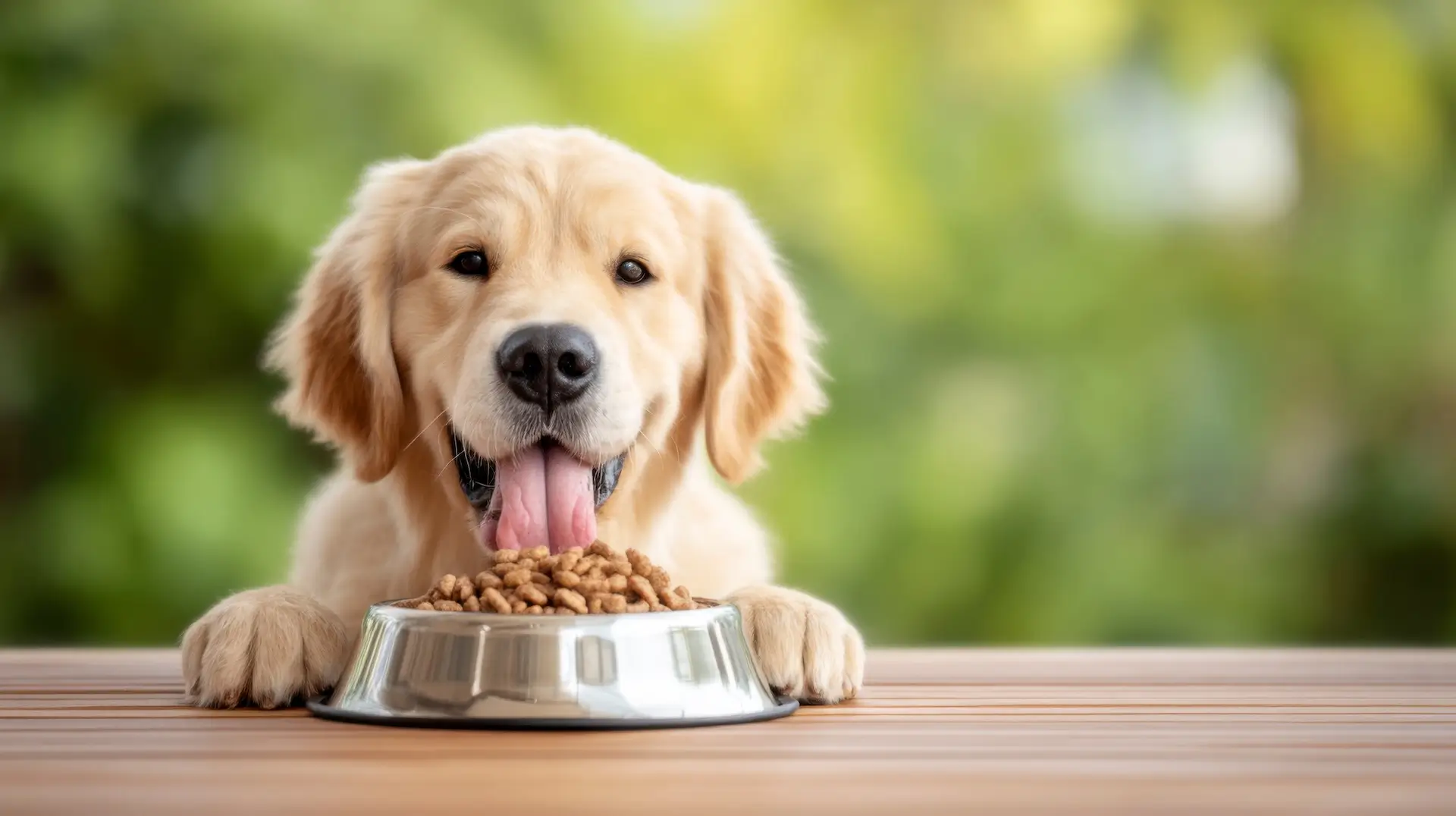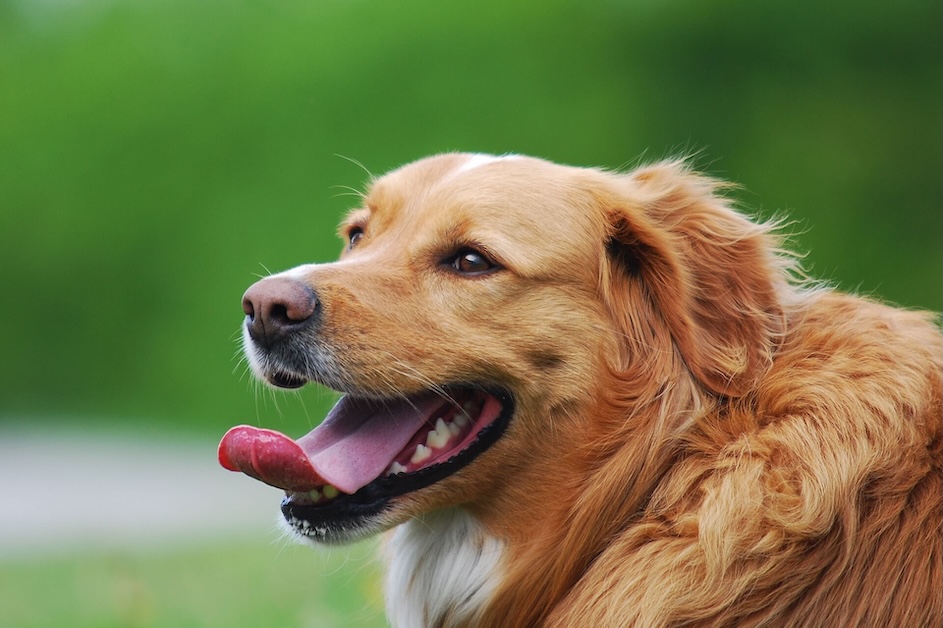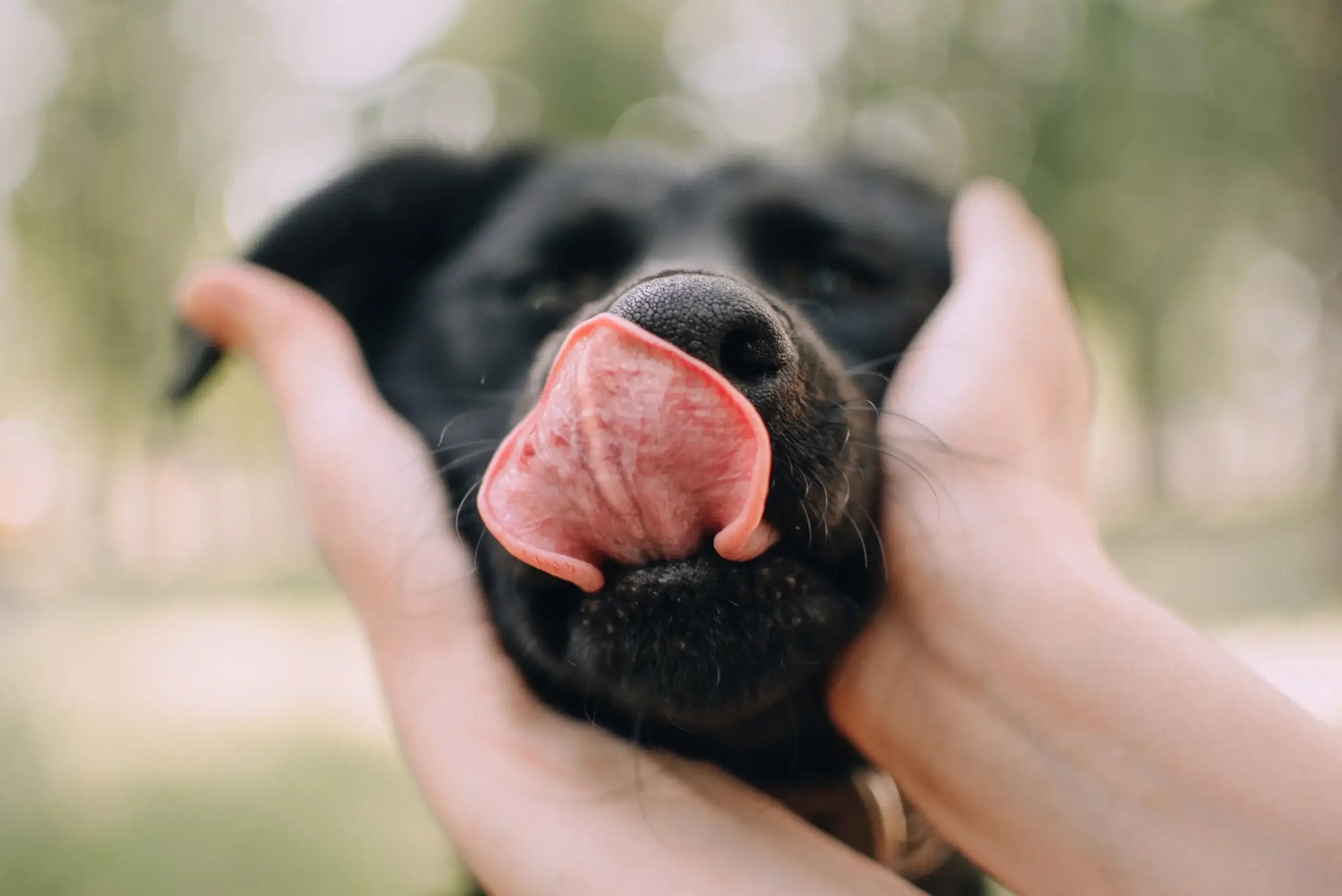Naju Pets | September 3, 2025

Keeping your large dog happy, healthy, and full of energy starts with the right large breed dog food. Big dogs have unique nutritional needs that differ from smaller breeds. From bone and joint support to calorie control and protein balance, choosing the right food can have a lifelong impact on your pup’s health.
In this guide, we’ll cover why large breeds need specialized nutrition, what to look for in their food, and feeding tips for both puppies and adults.
Why Large Breed Dogs Need Specialized Nutrition
Large breeds, such as Labradors, Golden Retrievers, Great Danes, and German Shepherds, grow quickly and carry more body mass, which means their food must:
- Support steady growth: Too many calories or excess calcium during puppyhood can cause joint and skeletal issues.
- Maintain joint health: Glucosamine, chondroitin, and omega fatty acids help protect hips and joints as your dog ages.
- Control calories: Large dogs are prone to obesity, so calorie-dense food can lead to excess weight and added joint stress.
- Provide balanced protein: While protein is essential for muscle maintenance, too much can cause unwanted weight gain if not paired with exercise.
What to Look For in Large Breed Dog Food
When choosing the best food for your big pup, focus on these essential components:
1. Controlled Calcium and Phosphorus Levels
Large breed puppies need the right mineral balance to prevent skeletal problems. Look for formulas specifically labeled for large breeds.
2. High-Quality Protein Sources
Lean meats like chicken, lamb, or salmon should be the first ingredient. Protein builds strong muscles but should remain moderate to avoid rapid growth.
3. Joint-Supporting Nutrients
Glucosamine and chondroitin help protect cartilage and maintain mobility—especially important for breeds prone to hip or elbow dysplasia.
4. Omega-3 Fatty Acids
Fish oil and flaxseed support healthy skin and coats while reducing inflammation.
5. Digestive Support
Look for prebiotics, probiotics, and fiber to keep your large dog’s sensitive digestive system healthy.
The Best Large Breed Dog Food for Puppies
Large breed puppies require slower, controlled growth to prevent bone deformities and joint issues. Look for a puppy formula that includes:
- Lower fat and calorie content for gradual growth
- DHA for brain and eye development
- Balanced calcium-to-phosphorus ratio
- No unnecessary fillers or by-products
Vet-recommended brands: Hill’s Science Diet Large Breed Puppy, Royal Canin Large Puppy, Purina Pro Plan Large Breed Puppy
The Best Large Breed Dog Food for Adults
Once your dog reaches adulthood (typically 12–18 months, depending on breed), transition them to an adult maintenance formula:
- Moderate calories and protein for balanced nutrition
- Glucosamine and omega-3s for joint health
- Fiber for healthy digestion
Popular choices: Blue Buffalo Life Protection Large Breed, Nutro Natural Choice, Orijen Large Breed Adult
How Much Should a Large Dog Eat Each Day?
Feeding amounts depend on age, activity level, and specific food formula:
- Large Breed Puppies: 3–4 small meals per day to prevent bloating and support steady growth
- Adult Large Dogs: 2 meals per day, with portions adjusted for calorie needs
Always follow the feeding chart on your dog food packaging and consult your veterinarian if unsure.
Do Large Breed Dogs Need High-Protein Food?
Not necessarily. Large breeds do best with moderate protein levels (around 23–28%) combined with healthy fats and carbs for energy. Excess protein can lead to unnecessary bulk, weight gain, or joint strain.
What’s the Best Time to Feed a Large Dog?
To reduce the risk of bloat (gastric torsion):
- Avoid feeding right before or after exercise
- Feed twice daily with evenly spaced meals
- Encourage your dog to rest after eating
The Bottom Line: Choosing the Right Large Breed Dog Food
Feeding your large dog isn’t just about filling the bowl—it’s about fueling their size, strength, and long-term health. The best large breed dog food provides:
- Balanced nutrition for growth and maintenance
- Joint support for healthy mobility
- Controlled calories to prevent obesity
When in doubt, consult your veterinarian to select a food that fits your dog’s breed, age, and lifestyle.


